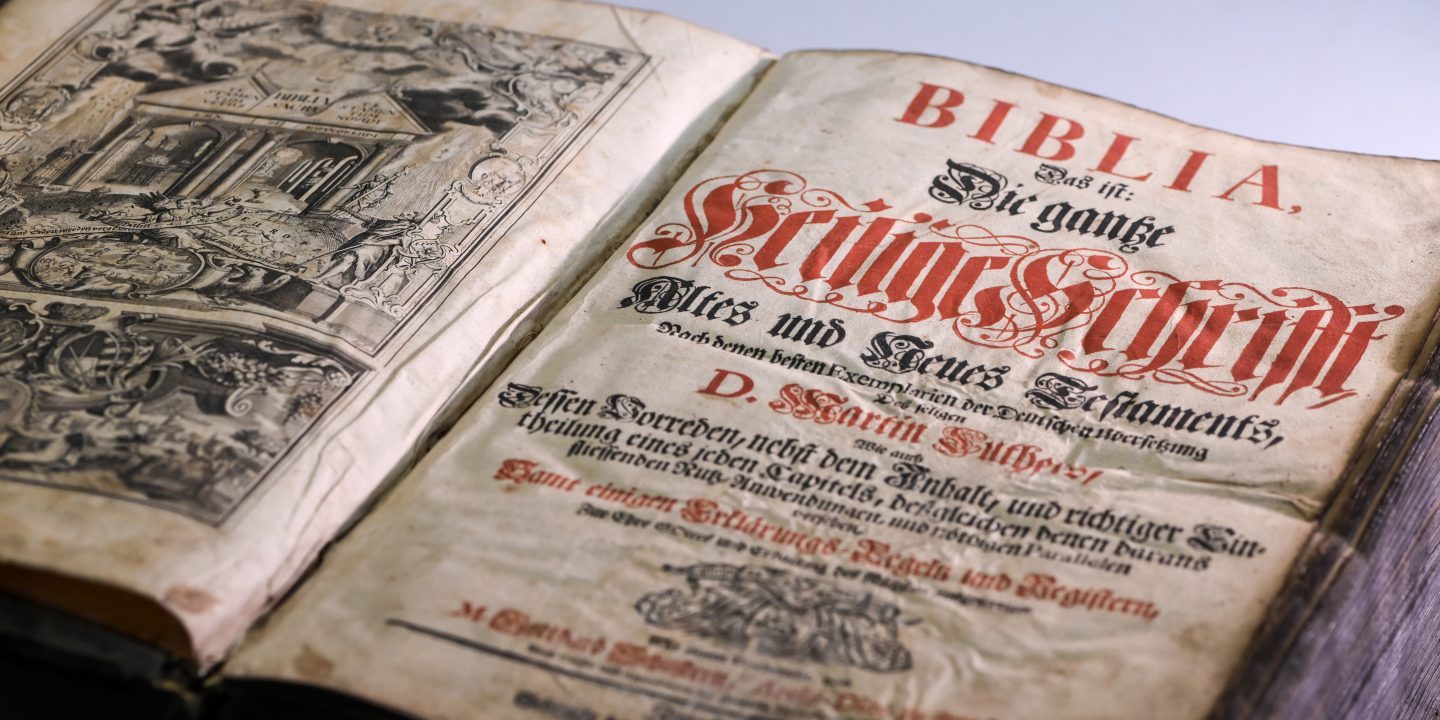At the University of Leipzig, a Junior Professor of Jewish Studies is advertised through the Federal State’s Program to Promote Young Academics. One can be happy if this joy does not leave an old taste, because this position has not been made public in the subject of Judaic Studies / Judaism / Jewish Theology, but in the Faculty of Evangelical Theology, and more precisely: in the Institute of Old Testament Studies. The aim is to teach “the interpretation of the modern Jewish Torah, modern Jewish literature and philosophy, as well as Jewish cultural and contemporary history”. Applicants must contribute to the training of the profession of pastor and teacher of religion “constructively”.
We can now ask why the emerging Protestant theologians are learning “the interpretation of the modern Jewish Torah” or “modern Jewish literature and philosophy”. Another question that should be asked is what is meant by “constructive” education: Should materials that would be useful to future Christian officials be transferred? Should the science of Judaism and its contemporary representatives help theology learn to overcome centuries-old anti-Judaism? Is this your job
Eye level As early as 1836, Abraham Geiger advocated the establishment of a Jewish theological college at a university: Geiger wanted to develop Jewish science from within the ranks of Judaism itself, but he also sought to share the knowledge of Judaism in the academy. General: Not for the sake of practicing theology as Christians do, but to be able to pursue the scholarly maintenance of one’s morals in universities – at your level of view with contemporary science. According to Geiger, the two theologies should go hand in hand, support each other amicably, but also “make the correct claim.” It certainly wasn’t in his mind that Jewish theology should be a subsection of Christian theology.
Judaism studies should not be reduced to a mere “ecclesiastical subject.”
Leopold Zones coined it more harshly in 1845, only a short time later. He stated that “the eyes of the theologians and their love were directed towards the Word of God and not the Jewish author.” Zones protested in clear terms in order to protect Jewish literature and the science of Judaism from the dominant grip of theology: “Jewish literature has also been called” rabbinic “by theologians. Jewish books have always viewed these people from a one-sided view, and they have viewed the Jews only as ecclesiastical material: as witnesses or opponents of victorious Christianity. ”
Dominance Jews as Church Subjects – Shouldn’t that change to this day? The initially well-intentioned claim that theologians should learn the basic literature of Judaism as part of their theological training turns out, upon closer examination, to be the old, new attempt, the overriding claim of Christian (and mostly Protestant) theology on Judaism. Studies and their themes to support them, as is already the case with the denominational Jewish institute still in Tübingen, Mainz, Muenster, Göttingen, Berlin and as is now also planned in Leipzig. And this becomes a professor
If denominational ties were abolished at such a stage, that would in fact make matters worse, since representatives of Judaism today will become co-workers of Christian theology. Topics of Judaic Studies and Jewish Theology that are self-articulated and considered important are formulated and directed in this way in the long term for the benefit and needs of the Church.
invitation letter Who needs the answers, that is, the legal literature of the Jews among the scholars of the Old Testament? Who cares about textual research of the Ashkenazi Bible when there are Bible versions of the Stuttgart Bible Society? And why should one search for liturgical literature and commentaries for Arabic-speaking readers, Hebrew-French glossaries of Jews in northern France or Jewish literature in Byzantium in the fifteenth century, all of which are topics that either do not play any role in Christian theology or have no connection with it anyway Progress?
Therefore, before teaching rabbinic literature and “the Jewish interpretation of the Torah” in Christian institutions, it would be good if the love of theology for Israel, Judaism and Jewish literature lead to the fact that Jewish studies and Jewish theology were transferred to German universities. Outside theological colleges. Thereafter, every Jewish and non-Jewish jurisprudence or theologian is invited to learn in the context of Judaism and Jewish theology, as in the case of the University of Jewish Studies in Heidelberg or at the University of Potsdam, without Judaism and Jewish theology. The same etiquette is gathered again to train the pastor. As long as such positions are still being announced, there is an old taste in every celebration of the Jewish presence in Germany from 1,700 years ago.
The author studies the topic of the Bible and the Jewish interpretation of the Bible at the University of Jewish Studies in Heidelberg.

“Alcohol buff. Troublemaker. Introvert. Student. Social media lover. Web ninja. Bacon fan. Reader.”






More Stories
“Time seems to cure long Covid.”
Science: The use of artificial intelligence is changing the way hospitals operate
Simple recipe: sweet cream cheese slices from the tray